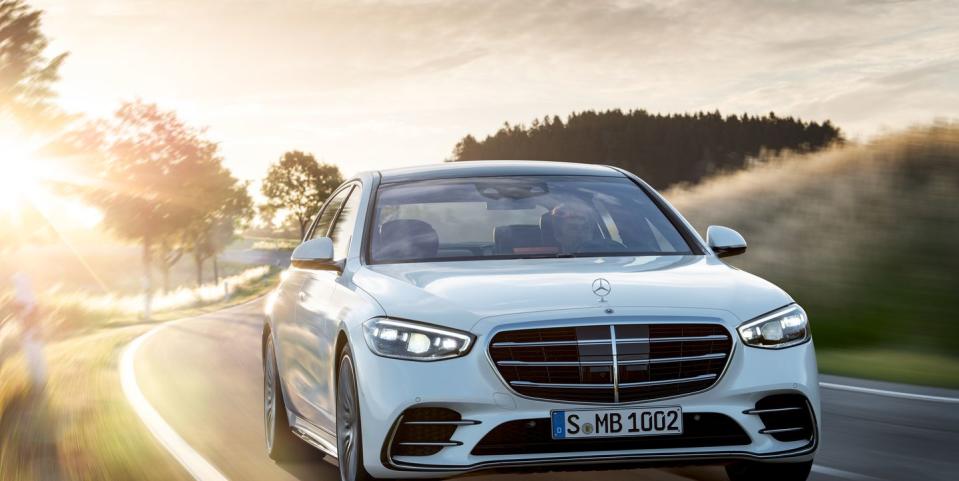Analysis: In the Age of the SUV, the Mercedes-Benz S-Class Abides

Reports of the death of the sedan have been greatly exaggerated. Or, at least, that’s what Adam Chamberlain, Mercedes-Benz USA’s vice president of sales and product management, told us before the launch of the new S-class.
Now, we’re not so naïve as to think that a VP of sales at Mercedes would actually tell us if he thought the brand-new S-class was doomed to fail, but when your flagship is a sedan in an SUV world, there are obvious questions. Chamberlain acknowledged that Mercedes’ U.S. sales have shifted from roughly 60 percent cars to roughly 60 percent SUVs in the last five years. And, yes, plenty of C- and E-class buyers are moving happily from those cars into the active-lifestyle-friendly GLC and GLE. But even in the face of sliding sales in 2019—12,528 S-classes found homes last year, a 16 percent year-over-year slip—and continued pressure from competitors like Tesla’s Model S, Chamberlain and Mercedes have reason to believe.
For starters, the S-class is not supposed to be a volume seller. No car in this price range is. Chamberlain insists that Mercedes plans for lower sales volumes as one S-class generation fades and customers anticipate the next model, which could explain at least part of the recent sales slump. Also, S-classes are more likely to be leased than most other Mercedes models, and automakers can aggressive lease deals offered at strategic points in a vehicle’s lifecycle to ensure a glut of customers will return to the dealer just in time to purchase (or lease) the new car. Mercedes has every reason to believe that those customers will lease S-classes again: around 70 percent of U.S. S-class customers come back for seconds.
Loyalty does not mean monogamy in the S-class world. The average S-class customer in the States is wealthy—$375,000-a-year wealthy—and has several vehicles. In many cases, more than one of those vehicles is a Mercedes. So while the brand’s more bourgeois clientele may be forced to choose between a C-class and a GLC, many S-class customers need make no such decision between the flagship sedan and a GLS. They can have both.
There’s a plan to combat Tesla, too. Next fall, an electric sedan called the EQS will join the Benz family. Details are scarce, but Chamberlain promises “real range” from this “S-class of electric vehicles.” Anyone who has spent time in both the Model S and the S-class knows that while Tesla’s powertrains are revolutionary and its autonomous driving capabilities paradigm-shifting, to refer to a Model S as a luxury car on the order of even the meanest Mercedes is an exaggeration bordering on a lie. If Mercedes can deliver on the electric powertrain technology and hold to its own high standards for fit and finish, it'll have a better car than Tesla has ever built. That’s still an if, though, and if the Porsche Taycan is any guide, the EQS could end up costing a lot more than the chintzier Tesla. Plus, no amount of technology can give 94-year-old Mercedes Tesla’s brand capital among young-rich, early-adopter types.

 Yahoo Autos
Yahoo Autos 